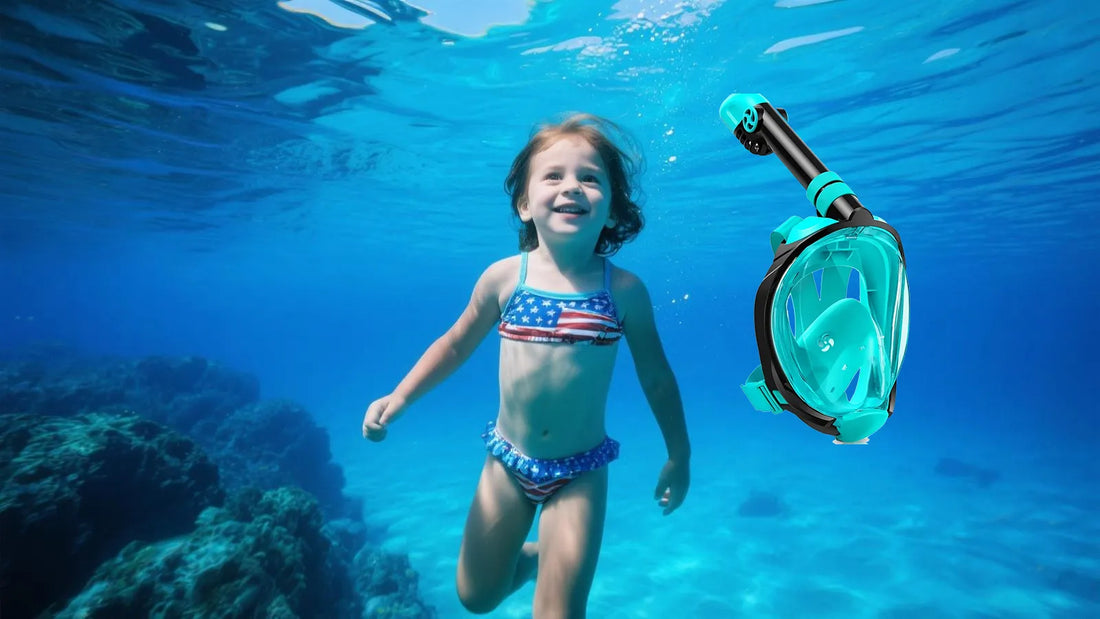Scuba diving is an exhilarating experience that allows you to explore the underwater world like never before. However, to ensure a safe and enjoyable dive, it's crucial to have the right gear and knowledge. This article will guide you through everything you need for scuba diving, from essential equipment to important tips.
Essential Scuba Diving Gear
Before you take the plunge, it's important to have the right gear. Here are the essential items you'll need:
Mask
A good quality mask is essential for clear vision underwater. It should fit snugly and create a watertight seal around your face. Look for a mask with a comfortable silicone skirt and tempered glass lenses for durability.
Snorkel
While not always necessary, a snorkel can be useful for surface swimming and conserving air in your tank. Choose a snorkel with a comfortable mouthpiece and a purge valve to easily clear any water that enters.
Fins
Fins help you move efficiently through the water. They should fit comfortably and provide enough propulsion without causing fatigue. There are different types of fins, including full-foot and open-heel, so choose the one that suits your diving style.
Wetsuit or Drysuit
Depending on the water temperature, you'll need either a wetsuit or a drysuit. A wetsuit provides insulation by trapping a thin layer of water between your skin and the suit, while a drysuit keeps you completely dry and is better for colder waters.
Buoyancy Control Device (BCD)
A BCD helps you control your buoyancy underwater. It allows you to inflate or deflate the device to ascend, descend, or stay at a certain depth. Make sure the BCD fits well and has enough lift capacity for your body weight and gear.
Regulator
The regulator is a crucial piece of equipment that allows you to breathe underwater. It reduces the high-pressure air from your tank to a breathable level. Ensure your regulator is in good working condition and has a comfortable mouthpiece.
Tank
The tank holds the compressed air you'll breathe underwater. It's important to check the tank's pressure and ensure it's filled to the appropriate level before your dive. Always use a tank that's been inspected and certified for safety.
Weight System
A weight system helps you achieve neutral buoyancy. It typically includes a weight belt or integrated weights in your BCD. Make sure the weights are evenly distributed and easy to release in case of an emergency.
Dive Computer
A dive computer is a valuable tool that tracks your depth, time, and decompression limits. It helps you plan your dive and avoid decompression sickness. Choose a dive computer that's easy to read and has the features you need.
Accessories
Other accessories you might need include a dive knife or cutting tool, a surface marker buoy (SMB), and a dive light. These items can enhance your safety and convenience during the dive.
Tips for a Safe and Enjoyable Dive
Having the right gear is just one part of the equation. Here are some tips to ensure a safe and enjoyable dive:
Get Certified
Before you start scuba diving, it's essential to get certified through a recognized training organization. Certification courses teach you the necessary skills, safety procedures, and knowledge to dive safely.
Plan Your Dive
Always plan your dive and dive your plan. Discuss the dive site, depth, time, and emergency procedures with your buddy. Make sure you have a clear understanding of the dive plan before entering the water.
Check Your Gear
Before each dive, thoroughly check your gear to ensure everything is in good working condition. Pay special attention to your regulator, BCD, and tank. If you notice any issues, address them before diving.
Practice Good Buoyancy Control
Good buoyancy control is essential for a safe and enjoyable dive. It helps you conserve energy, avoid damaging the underwater environment, and stay at the desired depth. Practice your buoyancy skills regularly.
Stay Within Your Limits
Always dive within your training and experience level. Avoid pushing your limits or attempting dives that are beyond your capabilities. If you're unsure, seek guidance from a more experienced diver or instructor.
Respect the Environment
Scuba diving allows you to explore the beauty of the underwater world, but it's important to respect the environment. Avoid touching or disturbing marine life, and be mindful of your fins to prevent damaging coral reefs.
Stay Hydrated and Rested
Diving can be physically demanding, so it's important to stay hydrated and well-rested. Avoid alcohol before diving, and make sure you're in good physical condition before entering the water.
Dive with a Buddy
Never dive alone. Always dive with a buddy who can assist you in case of an emergency. Keep an eye on each other and communicate regularly during the dive.
Monitor Your Air Supply
Keep a close eye on your air supply and plan your dive to ensure you have enough air to return to the surface safely. Always start your ascent with a sufficient air reserve.
Be Prepared for Emergencies
Be prepared for any emergencies that may arise during your dive. Familiarize yourself with emergency procedures, and carry a dive knife, SMB, and other safety equipment.
Scuba diving is an incredible adventure that opens up a whole new world beneath the waves. With the right gear and knowledge, you can ensure a safe and enjoyable experience every time you dive. So, gear up, dive in, and explore the wonders of the underwater world!

